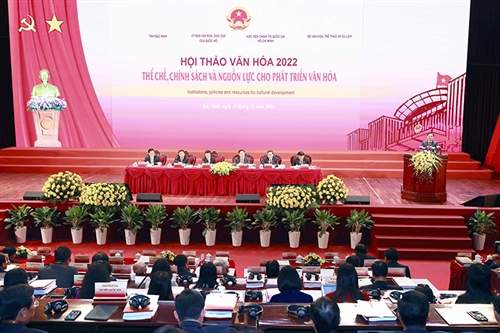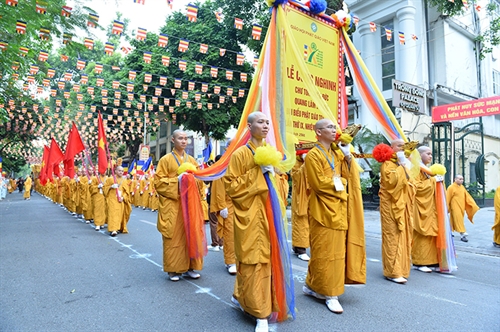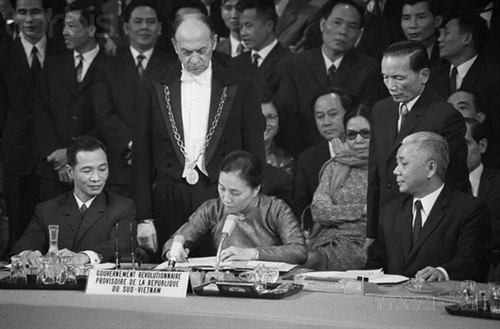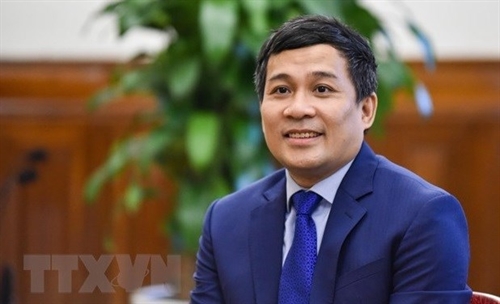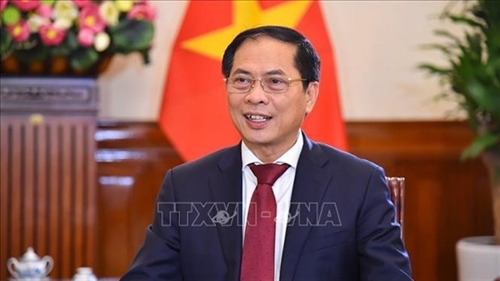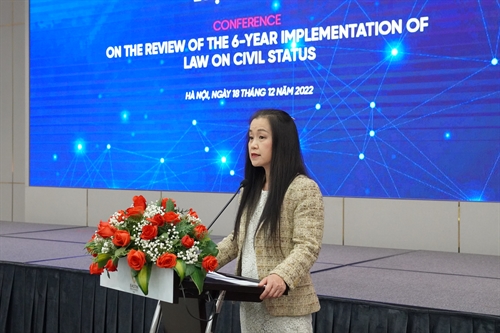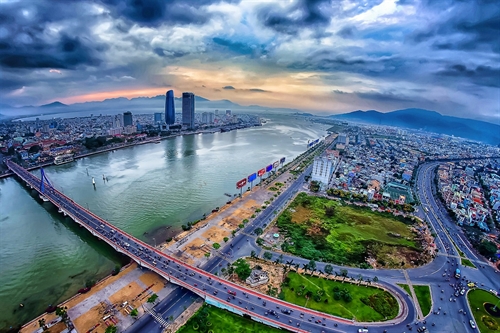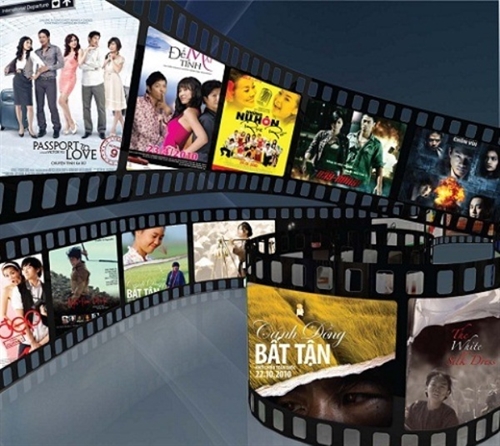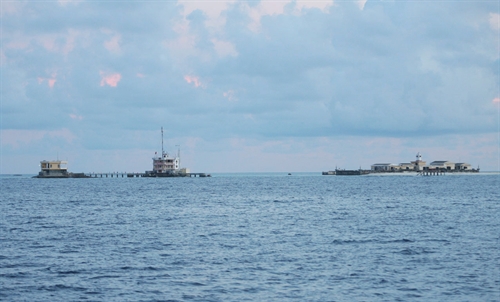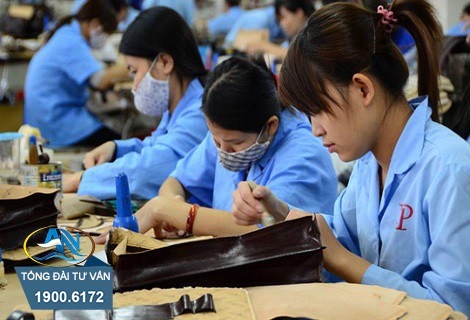The International Law Commission (ILC) of the United Nations (UN) will begin the new quinquennium (2023-27) at the UN Office in Geneva from April 24, 2023. It is timely to review the accomplishments of the ILC in progressively developing and codifying international law in a general way during its previous 2017-22 term, and appraise the contribution of Vietnam to the ILC’s work in the establishment of a rules-based international legal order.
Do Viet Cuong, LL.D[1]
ILC advances rules-based world order
The international system would not function without international law. The ILC, established in 1947, is one of the UN’s oldest special bodies, whose task is to prepare draft conventions on subjects which have not yet been regulated by international law or in regard to which the law has not yet been sufficiently developed in the practice of States. It has often been debated abound the ILC’s role in the contemporary lawmaking process, as well as its topic selection criteria. Key additional debates centered on whether the ILC should strike a better balance between traditional topics and newer ones, between “progressive development” on the one hand and “codification” on the other, between maintaining stability and innovating change, and if so, how far it can realistically be expected to go as a subsidiary technical body of the UN General Assembly toward progressively developing international law.
With 34 independent experts who must be persons of recognized competence in international law, the ILC is mandated to promote the progressive development and codification of international law in close cooperation with the UN General Assembly’s main committee for legal questions, the Sixth Committee. In practice, this means that the ILC prepares legal texts and reports every year on its work to the UN General Assembly. Over time, the ILC has produced seminal international law instruments which have in some cases set the benchmark for interstate regulation of core areas of the field including the law of the sea, the law of treaties, diplomatic and consular immunities, international criminal law, and the law of state responsibility.
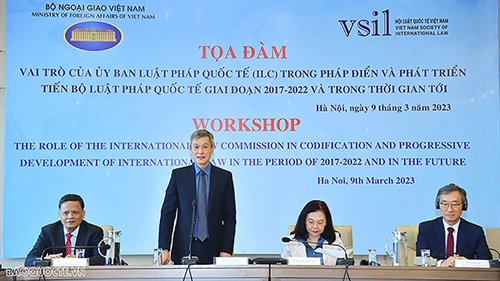 |
| Assistant to the Minister of Foreign Affairs Nguyen Minh Vu (standing) speaks at the workshop in Hanoi on March 9, 2023__Photo: WVR/Anh Son |
A highlight on the ILC’s work during its 2017-22 term
Over the past decades, international law has expanded in scope and it has become more complex and split into different branches of law. The ILC’s role, increasingly, is to clarify and strengthen the general rules. In addition, the ILC has examined topical legal problems comprehensively from the perspectives of different fields of law.
In its 2017-22 term, the ILC had finished identification of customary international law, provisional application of treaties, subsequent agreements and subsequent practice in relation to the interpretation of treaties, crimes against humanities, protection of the environment in relation to armed conflicts, protection of the atmosphere, and peremptory norms of general international law (jus cogens). The Commission has discussed general principles of law, as well as legal implications of sea level rise, succession of states in respect to state responsibility, and the immunity of state officials from foreign criminal jurisdiction, among other topics. The Commission also added three topics to its agenda: settlement of international disputes to which international organizations are parties, prevention and repression of piracy and armed robbery at sea, and subsidiary means for the determination of rules of international law. Further, the Commission added to its long-term work program a topic on non-legally binding international agreements.
It should be noted that the ILC has a vital role in the codification of customary international law and jus cogens, the two difficult topics. Regarding jus cogens, the work of the Commission took more than eight years since 2014 for ending with the adoption of the draft conclusions on identification and legal consequences of jus cogens at the second reading at the 3,595th to 3,601st meetings of the ILC held from July 22-27, 2022. This topic concerns an overarching category of international law, which underscores the need to secure broad support from States as to the content of these conclusions. In this regard, the Special Rapporteur for this topic, Dire Tladi, has expressed his view that the draft conclusions were supported by sufficient State practice which finds its base in the decisions of international courts and tribunals, primary among them being the International Court of Justice (ICJ), as well as decisions of the highest municipal courts in various States.
The draft conclusions broadly aim to provide guidance on two issues, namely the identification of jus cogens and their legal consequences. While the criteria for their identification have received broad support from States, the legal consequences have witnessed some concerns being voiced by a number of States. One of the most controversial issues brought up during the deliberation on the topic was the issue of consequences of invalidity of the resolutions of international organizations that conflict with jus cogens as contained in draft conclusion 16. The Special Rapporteur has, as the basis for this assertion, relied on judicial decisions of various courts and tribunals, noting that even UN Security Council resolutions would be rendered void if in conflict with jus cogens, although this might be rarely the case.
It is important to highlight the topic on environmental protection in relation to armed conflicts, which was finalized at the ILC’s 3,606th meeting on August 2, 2022. Interestingly, it was the very first completed report which has been done by one female Special Rapporteur of the ILC, Marja Lehto, in the history of this Commission. The significance of this topic was accentuated in the ICJ’s Advisory Opinion on the Legality of the Threat or Use of Nuclear Weapons, wherein it was noted, citing the UN General Assembly resolution 47/37 of November 25, 1992, on the “Protection of the Environment in Times of Armed Conflict”, that environmental considerations ought to be taken into account “when assessing what is necessary and proportionate in the pursuit of legitimate military objectives”. In fact, there is very little international regulation on the environmental aspects of armed conflicts. For the most part, the conventions on international humanitarian law were drafted long before the emergence of international environmental law or environmental awareness.
For nearly a decade since 2013, the ILC has been working on a project to clarify the legal framework that protects the environment before, during and after armed conflicts, and in situations of occupation. One significant finding is that the environmental effects of armed conflicts are not limited to the direct damage caused by the use of weapons and that indirect damage and long-term damage can be much worse. It means that conflicts leave a long shadow on the environment as well. The ILC’s work on the topic has made use of these findings. A broader perspective means not only a wider temporal scope but also attention to the obligations of states and actors that are not parties to conflicts. At the same time, it has been necessary to take into account not only international humanitarian law but also human rights and environmental aspects.
It is a notable achievement that with its 27 draft principles and commentaries, the ILC has succeeded in clarifying, interpreting and developing applicable international law on environmental protection in and in relation to armed conflicts. Two dimensions of the draft principles are innovative. Firstly, they are based on an analysis of the legal protection afforded to the environment not just during armed conflicts, but also prior to and after conflicts. Secondly and due to this extension of scope, the draft principles move beyond the laws of war, drawing from different legal fields such as environmental law, human rights law, arms control, and corporate obligations. However, Member States have developed divergent views on the draft principles. While some favor a progressive development of legally binding commitments, others have adopted more conservative views, rejecting binding commitments beyond existing legal frameworks. Thus, the outcome of environmental protection in relation to armed conflict process is not a new treaty but rather a normative framework including binding principles as well as non-binding principles for states and non-state actors. In this regard, one may concern as to what extent the non-binding declarations of principles could contribute to the progressive development of international law, as intended?
Sea level rise as a result of climate change is a topic with a strong emphasis on fairness, considering that the small island states bearing the brunt of the effects are the least to blame for climate change. The ILC therefore decided to include the topic “Sea-level rise in relation to international law” in its long-term work program at its 70th session in 2018. Accordingly, an open-ended Study Group on the topic was established, identifying three sub-topics, namely: (i) issues related to the law of the sea, (ii) issues related to statehood, and (iii) issues related to the protection of persons affected by sea-level rise. The issues the Study Group has identified in its work so far raise complex legal questions related to foundational aspects of international law. Given the lack of applicable State practice in relevant areas, it is difficult to draw definitive conclusions on how international law will develop.
Vietnam’s contributions to diversity of the ILC
Ambassador Nguyen Hong Thao was the first Vietnamese to be elected to the ILC for the 2017-22 term, and then was re-elected to the Commission for the following five-year tenure (2023-27). In his first term at the ILC, Ambassador Thao actively joined and offered ideas to the Commission’s important discussions. He has actively fought to protect the interests of developing countries, including Vietnam, and included many Africa-Asian State practices in the Commission’s reports to clarify unclear concepts and terminologies in international law. For example, with regard to crimes against humanity, the ILC member from Vietnam emphasized the support for punishing crimes against humanity on the basis of respect for the State sovereignty and non-interference in the internal affairs of others. He asked the Special Rapporteur to include in the report the new judgment of the Cambodian Court in November 2018 on the crime of genocide against people in Vietnam, Cambodia and Buddhism. Concerning the protection of the atmosphere, the conclusion of the Arbitral Award on the South China Sea case in 2016 relating to the responsibility of State for environmental damage in the South China Sea was included. With respect to the protection of the environment in times of armed conflict, Ambassador Thao raised the issue of post-conflict consequences such as chemical poisons, agent orange and landmines (in Vietnam), with compensation for damage and environmental restoration. Vietnamese and Japanese members asked for addition of a new guideline on the prohibition of the use of chemicals, modification of nature weapons and other weapons that cause widespread, long-term and serious consequences to human health and the environment.
Vietnam and small island countries in the Pacific are most vulnerable to the sea level rise. In this respect, Ambassador Thao carried out the research titled “Sea-level rise and the law of the sea in the Western Pacific Region” as a contribution paper on the State practice in the Western Pacific region to the topic “Sea-level rise in relation to international law” conducted by the Study Group of the ILC in the 2020-21 period. This contribution paper aims to summarize the consequences of the sea level rise for the Western Pacific States and outline their legal positions in relation to the sea level rise. The research also discusses specific issues, challenges and opportunities facing the Western Pacific States in supporting the maintenance of maritime baselines and limits notwithstanding physical changes caused by the sea level rise. When recognizing the role of the principle “Land Dominates the Sea” as the basis for maritime entitlements, Ambassador Thao indicated that it “does not go against the maintenance of baselines and maritime zones”.
The active participation of the ILC member from Vietnam should also be highlighted in various side events related to discussions at the ILC. For example, Ambassador Thao was a panelist of the 28th Annual Conference of the Australian and New Zealand Society of International Law themed “Armed Conflict and the Protection of the Natural Environment” and convened by the International Committee of the Red Cross, Australian Red Cross and New Zealand Red Cross. It was a chance for the Ambassador to introduce the ILC’s work on environmental protection in relation to armed conflicts and discuss the 2020 International Committee of the Red Cross Guidelines on the Protection of the Natural Environment in Armed Conflict. As soon as the Covid-19 pandemic broke out, in a role of ILC member, Ambassador Thao along with other ILC members from Chile and Sierra Leon have together recommended the topic on pandemic and international law to be included in the future program of work of the Commission for the purpose of achieving a Treaty on the prevention, preparedness and control of pandemics. The members’ initiative was supported by the Permanent Delegations of Vietnam, Chile, Sierra Leone, Portugal and Turkey, and an online side event to the UN Security Council and General Assembly meetings was held in October 2020. The webinar results were promoted by Ambassador Dang Dinh Quy, Permanent Representative of Vietnam to the UN, and the Permanent Mission of Vietnam in New York, with the support of other delegations to the UN General Assembly for appointing an international day of epidemic preparedness. Thanks to this, since 2020, December 27 becomes the International Day of Epidemic Preparedness. Ambassador Thao and the ILC members from Chile and Sierra Leon are also invited to the legal expert group for the drafting of new international instruments on epidemic preparedness within the framework of the World Health Organization.
Indeed, international law evolves and develops at the interface of practical politics. It perseveres in demanding and seeking just answers and responsibility and solutions to the most pressing problems of our time. This is what the ILC is doing: it is creating and facilitating a more profound understanding of what international law does and can do. Through its member’s activities, Vietnam actively participates in shaping and maintaining the rules-based international order for peace, stability and prosperous development.-
